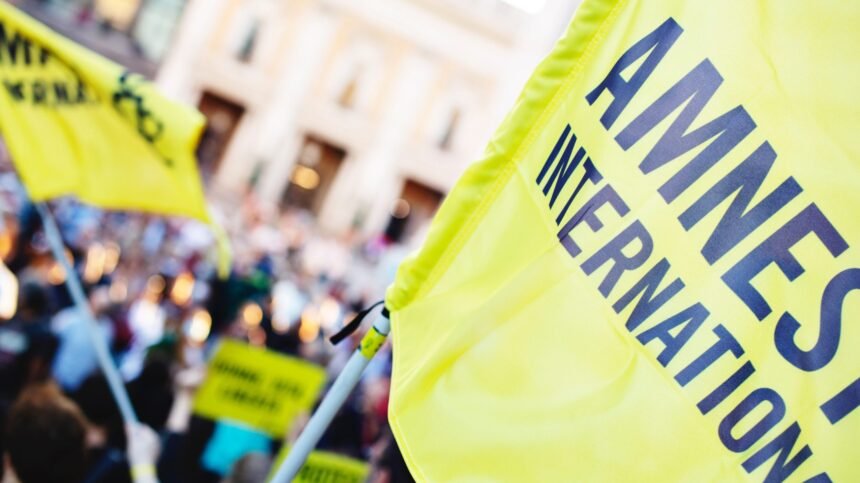Amnesty International has called for an investigation into a U.S. airstrike in Yemen that killed over 60 African migrants in April, saying the attack could amount to a war crime under international law.
The April 28 strike hit a Houthi-run prison in Saada province, where dozens of Ethiopian migrants were being detained. The facility had previously been targeted by the Saudi-led coalition, and international organizations had already identified it as a civilian detention site.
Amnesty: “Indiscriminate Attack” with No Military Objective
According to Amnesty’s report, remnants of two GBU-39 precision-guided bombs used by the U.S. military were found at the scene. Survivors interviewed by Amnesty said no Houthi fighters were present in or near the compound.
“The strike appeared to be an indiscriminate attack, with no clear military objective,” Amnesty stated.
International law strictly prohibits targeting prisons, hospitals, and other civilian structures unless they are being used for military purposes — and even then, all feasible precautions must be taken to avoid civilian casualties.
Amnesty said the Houthis later revised the death toll to 61, down from an earlier figure of 68. Witnesses reported hearing gunfire immediately after the strike, with the Houthis claiming that guards fired warning shots in panic.
U.S. Military Yet to Explain Strike
The U.S. Central Command (CENTCOM) has not yet provided an official explanation for the attack, which took place under President Donald Trump’s “Operation Rough Rider” — an intensified campaign against Iran-backed Houthi rebels accused of disrupting Red Sea shipping lanes amid the Israel–Hamas war.
“We take all reports of civilian harm seriously and are working to release the assessment results for Operation Rough Rider soon,” said U.S. Navy Capt. Tim Hawkins, a CENTCOM spokesperson.
Amnesty’s Kristine Beckerle, deputy regional director for the Middle East and North Africa, criticized the strike:
“It kind of defies belief that the U.S. would not have known that this compound held migrants. The fact that the same site had already been bombed in 2022 makes this even more disturbing.”
A Tragic Repeat of 2022 Incident
The same Saada compound was previously bombed by the Saudi-led coalition in 2022, causing 66 deaths and over 100 injuries, according to a U.N. investigation. Following that attack, Houthi guards reportedly executed 16 detainees who tried to escape.
Despite widespread international condemnation at the time, the facility continued to operate as a migrant detention center, making its renewed targeting particularly controversial.
Mounting Civilian Toll Under “Operation Rough Rider”
Amnesty and the U.K.-based monitoring group Airwars estimate that U.S. strikes during the Yemen campaign killed at least 224 civilians — nearly matching the civilian death toll from two decades of earlier U.S. operations in the country.
The Operation Rough Rider campaign has struck 1,000 targets, including power plants, communication towers, and oil depots. An April strike on one such depot killed over 70 people, according to rights groups.
Gen. Michael Kurilla, CENTCOM’s former commander, testified before Congress in June that civilian casualty data from Yemen would be made public “absolutely,” but those findings have yet to be released.
Migrant Victims Seeking a Better Future
Many of the victims were Ethiopian migrants attempting to reach Saudi Arabia for work. Survivors told Amnesty that their families were now struggling to send money to Yemen to pay for medical treatment following their injuries.
“They were people trying to escape poverty, only to die or be maimed in a foreign prison,” Beckerle said.
Meanwhile, Houthi authorities have been accused of limiting access to investigators, detaining U.N. staff, and confiscating humanitarian equipment, complicating independent efforts to verify conditions on the ground.
The airstrike — and Washington’s silence since — has reignited debate over U.S. accountability in overseas military operations, particularly those involving civilian harm in conflict zones.







